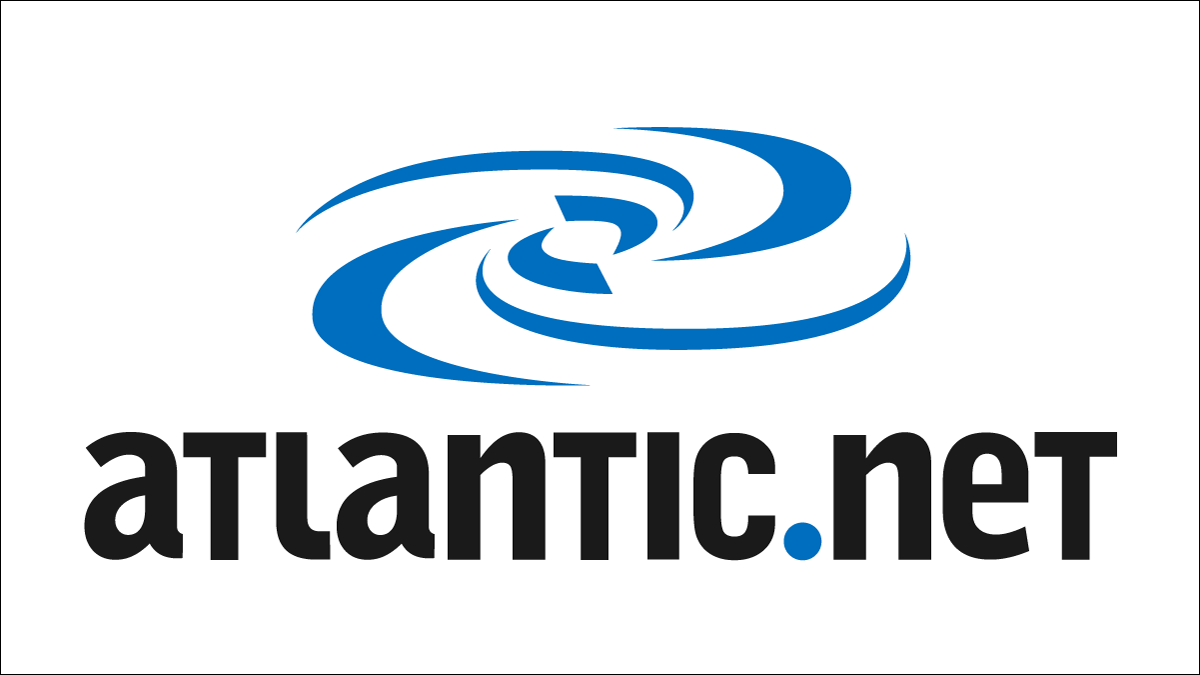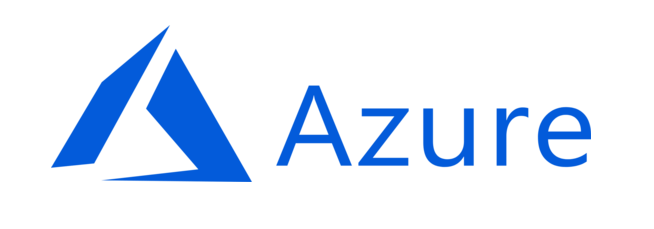Table of Contents
- Which PCI Compliant Host is Right for You?
- Managed vs. Unmanaged PCI Hosting
- Reviews: Who Should Choose Which Provider?
- Top PCI Compliant Hosting Providers Reviewed
- Atlantic.Net
- AWS
- Microsoft Azure
- Google Cloud
- Shopify
- Rackspace
- SiteGround
- The 2026 Standard: PCI DSS 4.0 is Non-Negotiable
- Checklist: What Are the New 2026 Mandates?
- FAQ: PCI Hosting in 2026
Credit and debit card payments accounted for approximately 62% of all financial transactions in the United States in 2023, and there is evidence of a clear and continuing trend away from cash and towards card payments.
Whatever your views are on this change, it’s clear that credit card usage, in particular, has seen significant growth, nearly doubling its share since 2016. Securely handling credit or debit card transactions is now more critical than ever for your business.
Guaranteed security is essential when handling card payments, making Payment Card Industry Data Security Standard (PCI DSS) compliance vital. For 2026, PCI DSS 4.0 is the only standard that matters. The “best” host depends on whether you need a team to manage that compliance for you or if you have the internal engineering to handle it.
Which PCI Compliant Host is Right for You?
- Atlantic.Net: Best for Managed Compliance. Includes an “Audit-Ready” environment, BAA signing, and built-in intrusion detection for healthcare/fintech.
- Rackspace: Best for Enterprise Multi-Cloud. High-cost, high-touch support for complex infrastructure that requires 100% uptime.
- AccuWeb Hosting: Best for Budget Dedicated Servers. Good hardware specs and global locations for businesses needing isolation without the enterprise price tag.
- AWS (Amazon Web Services): Best for DIY Scalability. Infinite scale for developers who can configure their own firewalls, encryption, and compliance controls.
Managed vs. Unmanaged PCI Hosting
| Provider | Best for | PCI Approach | Audit-Proof Evidence You Can Access |
| Atlantic.Net | Managed PCI-ready environments | Shared responsibility + managed security options | PCI-focused hosting program + audited controls; SLA terms |
| AWS | Custom payment apps at scale | Shared responsibility | PCI DSS Level 1 Service Provider; AOC + responsibility summary via AWS Artifact |
| Microsoft Azure | Microsoft-centric stacks | Shared responsibility | Service Provider Level 1 validation; AOC available to customers |
| Google Cloud | GKE / Google-native architectures | Shared responsibility | PCI DSS 4.0.1 compliant services list + shared responsibility matrix |
| Shopify | Reduce PCI scope with hosted checkout | Platform-managed checkout | Level 1 PCI DSS compliance extends to stores by default |
| Rackspace | PCI-certified provider + managed environments | Provider-certified facilities + managed options | PCI DSS Level 1 provider status for facilities in multiple regions (per Rackspace) |
| SiteGround | Stores using off-site PCI payment processors | “Scope reduction” approach (don’t host card data) | SiteGround guidance says PCI compliance is typically handled by the payment processor, not your whole website hosting. |
Reviews: Who Should Choose Which Provider?
Before you pick a “PCI compliant host,” separate two things:
- Provider compliance: whether the vendor can produce PCI evidence (like an AOC) for the infrastructure/services they operate.
- Your compliance: whether your environment, configs, apps, and processes meet PCI DSS (most vendors run a shared-responsibility model).
Top PCI Compliant Hosting Providers Reviewed
The providers below are strong options in 2026, but they fit different payment architectures—from managed PCI-ready hosting to hyperscaler cloud to hosted checkout that reduces your PCI scope.
Atlantic.Net
Best for PCI-ready hosting with a managed path
Atlantic.Net positions a dedicated “PCI-compliant hosting” offering aimed at businesses running regulated workloads. If you want a host that leads with compliance use cases (instead of “general web hosting”), Atlantic.Net is one of the clearer “PCI-ready environment” options.
- Key Specs: 100% uptime SLA for critical infrastructure components (excluding scheduled maintenance).
- Compliance: PCI-focused hosting offering; Atlantic.Net states its compliance hosting solutions are certified/audited by independent auditors and references SOC reports.
- Verdict: Choose Atlantic.Net if you want a PCI-forward provider and prefer a more guided, compliance-oriented hosting posture versus building everything from raw cloud services.
What stands out:
- Program Focus: Provider-led PCI hosting program (not just “PCI is your job”).
- Reliability: Uptime SLA published for core infrastructure components.
- Audit Support: Compliance positioning includes audited controls and SOC reporting references.
Who should choose Atlantic.Net?
Teams that want a PCI-ready hosting baseline and don’t want to assemble every control from scratch.
AWS
Best for building custom PCI workloads at scale
AWS states it is certified as a PCI DSS Level 1 Service Provider and makes the PCI DSS Attestation of Compliance (AOC) and Responsibility Summary available to customers through AWS Artifact. This is a good fit if you’re building a custom payment stack and need strong audit evidence access.
- Key Specs: PCI DSS Level 1 Service Provider; AOC and Responsibility Summary available via AWS Artifact.
- Compliance: PCI documentation and evidence distribution through AWS Artifact.
- Verdict: Choose AWS when you need flexibility for architecture (tokenization, microservices, multi-region), and you can run disciplined security operations under shared responsibility.
What stands out:
- Access: Clear “get the AOC” path via AWS Artifact.
- Certification: Explicit Level 1 Service Provider statement.
- Clarity: Strong documentation for audit expectations and responsibilities.
Who should choose AWS?
Engineering-led teams building custom payment systems with mature security operations.
Microsoft Azure
Best for Microsoft-first PCI environments
Azure maintains a PCI DSS validation at Service Provider Level 1 and publishes PCI compliance guidance through Microsoft documentation. If your identity, monitoring, and governance are already centered on Microsoft, Azure keeps payment workloads aligned with the rest of your platform.
- Key Specs: Azure maintains PCI DSS validation at Service Provider Level 1.
- Compliance: Microsoft publishes PCI DSS compliance guidance and scope information across services.
- Verdict: Choose Azure if you’re already standardized on Microsoft and want PCI workloads in the same governance and identity ecosystem.
What stands out:
- Validation: Service Provider Level 1 validation statement in Microsoft documentation.
- Resources: Clear compliance offering pages for PCI DSS.
- Integration: Practical alignment for Microsoft-centric orgs (identity + ops).
Who should choose Microsoft Azure?
Teams running a Microsoft-heavy stack who want PCI workloads under the same controls and governance.
Google Cloud
Best for GKE and clear PCI scope boundaries
Google Cloud publishes a PCI DSS compliance page listing services reviewed by an independent QSA and determined to be PCI DSS 4.0.1 compliant, plus a shared responsibility matrix. If you’re running PCI systems on GKE or Google-native services, this documentation helps clarify what’s “in scope” and who owns which controls.
- Key Specs: QSA-reviewed services determined PCI DSS 4.0.1 compliant (as listed by Google Cloud).
- Compliance: Shared responsibility matrix (PCI DSS v4 responsibility matrix PDF dated Dec 2025) and PCI reports via Compliance Reports Manager.
- Verdict: Choose Google Cloud if you want explicit PCI documentation (services in scope + responsibility matrix) and you’re comfortable with engineering segmentation, logging, and change control.
What stands out:
- Service List: Published list of PCI DSS 4.0.1 compliant services.
- Matrix: Shared responsibility matrix that’s audit-friendly.
- Process: Clear direction on how to request compliance reports.
Who should choose Google Cloud?
Teams building PCI workloads on GKE or Google-native services that want clear scoping documentation.
Shopify
Best for reducing PCI scope with hosted checkout
Shopify states it is certified Level 1 PCI DSS compliant and that this compliance extends by default to all stores powered by Shopify. For many merchants, this is the simplest way to keep most card-data handling out of your own servers and reduce PCI overhead.
- Key Specs: Certified Level 1 PCI DSS compliant; extends by default to all Shopify stores.
- Compliance: Shopify’s PCI statement is published on its security/compliance page.
- Support: Support varies by plan.
- Verdict: Choose Shopify if your priority is lowering PCI scope by using a hosted e-commerce platform and keeping card entry/checkout within the platform.
What stands out:
- Coverage: Direct Level 1 PCI DSS statement with “extends by default” language.
- Architecture: Strong fit for merchants who don’t want to build a cardholder data environment.
- Speed: Faster route to accepting payments compared with custom PCI builds.
Who should choose Shopify?
Merchants who want to minimize PCI scope and avoid self-hosting payment flows.
Rackspace
Best for PCI Level 1 provider status with managed options
Rackspace states it has achieved PCI DSS Level 1 provider status for facilities in the U.S., U.K., Hong Kong, and Australia, and it positions PCI-capable solutions across public cloud, private cloud, dedicated, and hybrid environments. This is useful if you want a managed provider that publishes PCI certification positioning and can support multiple infrastructure models.
- Key Specs: PCI DSS Level 1 provider status for specified facilities/regions (per Rackspace).
- Compliance: Rackspace publishes PCI compliance positioning and related service resources.
- Support: Offers “PCI DSS Core Services” positioning that includes QSA-led scoping and de-scoping options (as a paid service).
- Verdict: Choose Rackspace if you want a provider that publicly states Level 1 provider status and you want managed options across multiple environment types.
What stands out:
- Global Reach: Published Level 1 provider status statement with regional facility coverage.
- Flexibility: Multi-environment positioning (public/private/dedicated/hybrid).
- Services: Optional PCI services framed around scoping and de-scoping support.
Who should choose Rackspace?
Teams that want managed infrastructure choices plus PCI-focused consulting/services.
SiteGround
Best for stores using off-site payment processing
SiteGround does not market “PCI-certified hosting” as the default requirement for most small businesses. Its published guidance emphasizes that if you use a PCI-compliant payment processor, you typically don’t need to host your own “PCI-compliant server,” because the processor handles sensitive payment data.
- Key Specs: N/A (Focus is on off-site processing).
- Compliance: SiteGround guidance frames PCI compliance as tied to the payment processor when sensitive data is handled off-site.
- Verdict: Include SiteGround in a 2026 PCI list only when your design keeps card data out of your server scope (hosted payment pages, redirects, or embedded checkout handled by a compliant processor).
What stands out:
- Guidance: Clear messaging that a PCI-compliant processor can keep you from needing “PCI-compliant servers.”
- Simplicity: Practical fit for small merchants, minimizing PCI scope.
- Strategy: Forces an architecture-first decision (where does card data flow?).
Who should choose SiteGround?
Merchants who will not store/process/transmit card data on the server and will rely on a compliant payment provider.
The 2026 Standard: PCI DSS 4.0 is Non-Negotiable
As of March 31, 2025, PCI DSS v3.2.1 is retired. All assessments in 2026 must meet PCI DSS v4.0 standards. This update fundamentally changes hosting requirements. If your host isn’t proactive, you will fail your audit.
- MFA Everywhere: Multi-Factor Authentication is now mandatory for all access to the Cardholder Data Environment (CDE), not just remote access. Your host must support MFA for your administrative portal.
- Authenticated Scanning: Internal vulnerability scans must now be authenticated. Your host must facilitate these deeper scans, not just surface-level pings.
- Client-Side Protection: For e-commerce, you must monitor and manage all JavaScript on payment pages to prevent skimming (Section 6.4.3). While this is largely your responsibility, a host offering a WAF (Web Application Firewall) makes this significantly easier.
- Continuous Compliance: 4.0 shifts focus from “annual checks” to “continuous security.” You need a host that provides logs and monitoring data in real-time, not just once a year.
Checklist: What Are the New 2026 Mandates?
Use this when you shortlist vendors:
Audit evidence you can actually obtain
- Can you access the provider’s Attestation of Compliance (AOC)?
- Can they tell you which services are in scope for PCI?
Clear shared responsibility boundaries
- Do they publish a shared responsibility matrix or equivalent?
- Can they explain what you must configure (IAM, OS, logging, encryption, scanning)?
Scope reduction support
- Do they support architectures that keep card data out of your systems (hosted checkout, tokenization, segmented CDE)?
- Can you isolate payment systems from the rest of your environment?
Security controls you will run every day
- WAF and network controls
- Central logging and alerting
- Key management and encryption patterns
- Vulnerability management, patching, and remediation workflows
Support that understands PCI
- Can support explain scan findings and common remediation steps?
- Do they offer architecture guidance for PCI segmentation and evidence collection?
FAQ: PCI Hosting in 2026
Can I use shared hosting for PCI compliance?
Technically, yes, but it is highly discouraged and often impossible to validate. In a shared environment, a “noisy neighbor” could introduce vulnerabilities that compromise your data. Most auditors (QSAs) will require a VPS or Dedicated Server to ensure data isolation. (Note: SiteGround’s GoGeek plan is a rare exception that isolates resources sufficiently for smaller merchants).
Who is responsible for a data breach?
You are. Even if you use a “PCI Compliant Host,” the merchant of record retains ultimate liability. A compliant host covers the infrastructure (power, network, physical security), but you are responsible for secure passwords, application code, and employee training.
Does a “PCI Compliant” badge mean I am compliant?
No. It means the host has passed their audit for the hardware/network. You must still complete your own Self-Assessment Questionnaire (SAQ) covering your software and business processes.
Why is PCI DSS 4.0 harder for hosting?
It removes ambiguity. “Best practices” like authenticated scanning and strict MFA are now hard requirements. Legacy hosts that haven’t updated their access controls will force you to implement costly workarounds.






